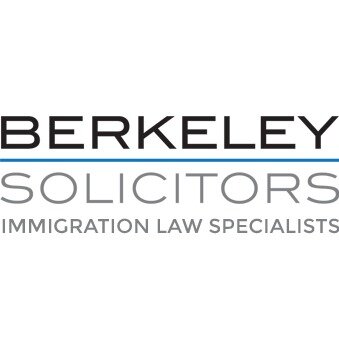Best Asylum Lawyers in Dublin
Share your needs with us, get contacted by law firms.
Free. Takes 2 min.
List of the best lawyers in Dublin, Ireland
About Asylum Law in Dublin, Ireland
Asylum law in Dublin, Ireland is designed to provide protection to individuals who have fled their home country due to a well-founded fear of persecution based on race, religion, nationality, membership in a particular social group, or political opinion. The process involves several stages, including application submission, interview, and perhaps appeals. The Department of Justice and Equality is primarily responsible for managing asylum applications in Ireland.
Why You May Need a Lawyer
Seeking asylum is a complex legal process that can be overwhelming and confusing. Common situations where legal assistance may be necessary include:
- Initial Application: Preparing and submitting a detailed and accurate asylum application.
- Interviews: Representing you during interviews with the International Protection Office (IPO).
- Appeals: Navigating the appeals process if your initial application is rejected.
- Additional Claims: Submitting new evidence or claims if circumstances change.
- Legal Advice: Understanding your rights and obligations under Irish law.
Local Laws Overview
Key aspects of local asylum laws in Dublin include:
- International Protection Act 2015: This act governs asylum applications in Ireland, ensuring compliance with both national and EU law.
- Subsidiary Protection: If an individual does not qualify for refugee status, they may be eligible for subsidiary protection, which offers a different form of safety.
- Reception Conditions Directive: This mandates minimum standards for the reception of asylum seekers, including housing, food, and healthcare.
- Processing Time: Generally, the aim is to process applications within six months, but it may take longer depending on individual circumstances.
Frequently Asked Questions
1. Who is eligible for asylum in Ireland?
Individuals who fear persecution due to race, religion, nationality, membership in a particular social group, or political opinion may be eligible for asylum in Ireland.
2. How do I apply for asylum in Dublin?
You need to apply at the International Protection Office (IPO) in Dublin. An application form needs to be filled out, followed by an in-person interview.
3. What happens after I apply for asylum?
After applying, you will have an interview with an IPO officer. Your case will be assessed, and a decision will be communicated to you in writing.
4. How long does the asylum process take?
The processing time varies but typically aims to be completed within six months. However, it can take longer depending on complexity and backlog.
5. Can I work while my asylum application is being processed?
As of 2018, asylum seekers are allowed to work if their application has been in process for more than nine months and they have not received a final decision.
6. What happens if my asylum application is denied?
You can appeal to the International Protection Appeals Tribunal (IPAT). Legal advice is strongly advised during this process.
7. Can my family join me in Ireland if I am granted asylum?
Yes, you can apply for family reunification, which allows immediate family members to join you in Ireland.
8. What is the difference between refugee status and subsidiary protection?
Refugee status is granted to those who meet the definition of a refugee under international treaties. Subsidiary protection is granted to individuals who do not qualify as refugees but would still face harm if returned to their home country.
9. What kind of support will I receive as an asylum seeker?
Asylum seekers are provided with accommodation, food, healthcare, and a small weekly allowance during the processing of their application.
10. Do I need a lawyer to apply for asylum?
While it is not mandatory to have a lawyer, legal assistance is highly recommended to navigate the complexities of the asylum process effectively.
Additional Resources
For more information and assistance, you can reach out to the following organizations:
- The Irish Refugee Council
- Nasc, the Migrant and Refugee Rights Centre
- The Legal Aid Board
- International Protection Office (IPO)
- United Nations High Commissioner for Refugees (UNHCR) Ireland
Next Steps
If you need legal assistance in the field of asylum, consider taking the following steps:
- Consult a Lawyer: Seek legal advice from a solicitor experienced in asylum law.
- Contact Support Organizations: Reach out to local organizations that provide support and advocacy for asylum seekers.
- Prepare Documentation: Gather any relevant documents and evidence that support your case.
- Stay Informed: Keep up to date with any changes in asylum laws and procedures in Ireland.
Remember, seeking asylum is a human right, and proper legal guidance can significantly impact the outcome of your case.
Lawzana helps you find the best lawyers and law firms in Dublin through a curated and pre-screened list of qualified legal professionals. Our platform offers rankings and detailed profiles of attorneys and law firms, allowing you to compare based on practice areas, including Asylum, experience, and client feedback.
Each profile includes a description of the firm's areas of practice, client reviews, team members and partners, year of establishment, spoken languages, office locations, contact information, social media presence, and any published articles or resources. Most firms on our platform speak English and are experienced in both local and international legal matters.
Get a quote from top-rated law firms in Dublin, Ireland — quickly, securely, and without unnecessary hassle.
Disclaimer:
The information provided on this page is for general informational purposes only and does not constitute legal advice. While we strive to ensure the accuracy and relevance of the content, legal information may change over time, and interpretations of the law can vary. You should always consult with a qualified legal professional for advice specific to your situation.
We disclaim all liability for actions taken or not taken based on the content of this page. If you believe any information is incorrect or outdated, please contact us, and we will review and update it where appropriate.













